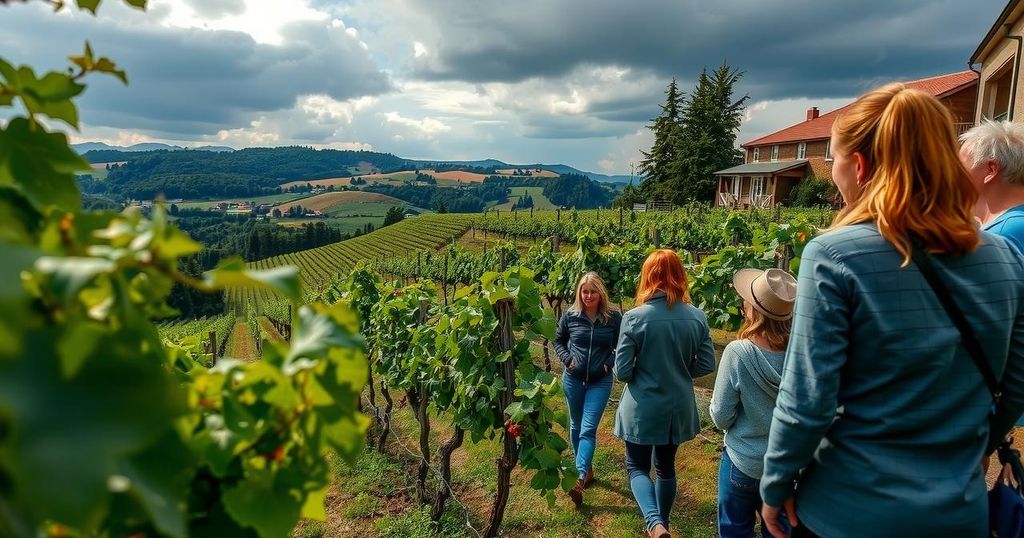This article discusses the escalating global climate discussions at COP 29 in Azerbaijan, where nations grapple with climate change investments. In Mendoza, Argentina, the Terroir Congress focused on wine’s connection to climate, highlighting the challenges faced by vineyards due to rising temperatures and water scarcity. The need for collaboration and adaptation in winemaking practices is emphasized as essential for sustainability.
This week marked significant developments in global climate conversations as Azerbaijan hosted COP 29 amidst escalating tensions between nations. China and India joined the discourse with developing countries, urging the United States and European leaders to commit to substantial funding for climate mitigation. Concurrently, President Joe Biden made a historic visit to the Amazon, pledging support for biodiversity and declaring November 17 as International Conservation Day.
In Mendoza, Argentina, a vital gathering centered on the intersection of climate change and winemaking unfolded. Here, Dr. Laura Catena, a prominent figure in the local wine industry, articulated that winemaking is integral to the region’s culture and economy. Mendoza, renowned for its Malbec wines, has become an agricultural powerhouse, producing significant revenue from wine exports, notably $844 million in 2021.
As the Terroir Congress convened, attendees underscored the paramount role climate change plays in shaping terroir, stressing that it is not solely about soil but how climate influences wine quality and style. Renowned viticulturist Kees Van Leeuwen pointed out rising temperatures and erratic weather patterns as substantial threats to agricultural practices, impacting the unique characteristics that define wines from regions like Mendoza.
The dialogue extended beyond Argentina to international experts, including climatologist Greg Jones from Oregon, who discussed the challenges posed by climate variability on grape cultivation. He highlighted that certain grape varieties, such as Pinot Noir, have specific climate requirements, which may not be met as temperatures rise. Jones emphasized the need for adaptability in traditional regions to continue producing quality wines.
Amidst picturesque landscapes of Mendoza, Fernando Buscema from the Catena Institute of Wine addressed water scarcity, a growing concern for viticulture in light of climate change. He emphasized collaborative efforts across public and private sectors to enhance water efficiency and sustainable practices in wine production, underscoring that such cooperative action is essential in navigating the adversities brought by climate change.
The recent discussions and negotiations surrounding climate change have prompted increased attention to the agricultural sector, particularly winemaking, which is significantly affected by climatic variations. The events in Azerbaijan and Brazil reflect a growing recognition that global temperatures and erratic weather patterns not only threaten ecosystems but also the centuries-old tradition of winemaking in regions like Mendoza, Argentina, known for its distinctive Malbec varietals. This connection between climate and viticulture underscores the necessity for adaptation and innovation in agricultural practices to safeguard future production.
In conclusion, the current climate dialogue is vital for the future of agriculture, particularly winemaking, which faces existential threats from climate change. As significant stakeholders convene, it becomes clear that measures must prioritize sustainability and adaptation, especially in regions such as Mendoza where the cultural and economic impact of viticulture is profound. Collaborative efforts in water conservation and climate-resilient agricultural practices must be embraced to ensure the legacy and future of wine production.
Original Source: www.forbes.com






